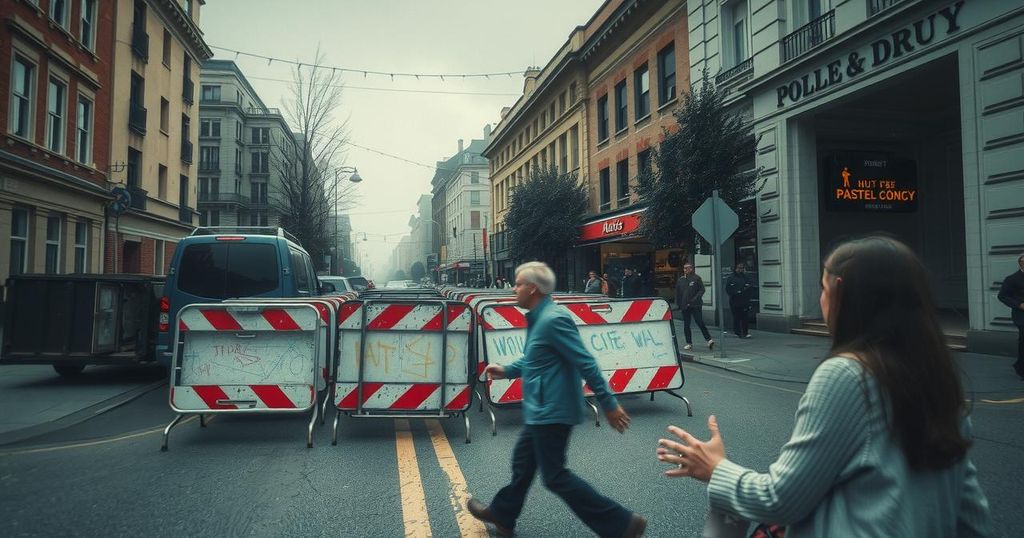Guinea-Bissau’s opposition plans to paralyze the country amid a dispute over President Umaro Sissoco Embalo’s term expiration. The Supreme Court states his term ends in September, contrary to the opposition’s claim of immediate expiration. Embalo has postponed elections to November 30, sparking further tensions in a country historically plagued by political instability and coups.
In Guinea-Bissau, opposition factions have declared their intent to bring the nation to a standstill amidst a contentious dispute regarding the expiration of President Umaro Sissoco Embalo’s term. According to opposition leaders, Embalo’s mandate concludes on Thursday, while the Supreme Court of Justice contends it lasts until September 4. This disagreement escalated tensions, particularly as President Embalo announced that presidential and legislative elections are postponed until November 30.
The PAI Terra Ranka coalition, led by the former ruling PAIGC party, announced plans for a complete shutdown of the capital on February 27, stating that “Bissau will be a dead city.” Additionally, parliamentary elections initially scheduled for November 2024 have been indefinitely postponed, purportedly due to technical and financial challenges, complicating the electoral timeline further.
President Embalo, a former army general who has faced multiple coup attempts since assuming office, asserts that he dissolves the opposition-led parliament due to its inaction after a violent incident involving gunfire and clashes in the capital in December 2023. On a diplomatic front, Embalo met with Russian President Vladimir Putin, revealing that his wife had previously dissuaded him from seeking a second term.
The regional bloc ECOWAS has committed to deploying a mission to Guinea-Bissau to mediate the dispute over the political calendar. However, the opposition coalition has declined to engage with ECOWAS representatives, accusing the mission of partiality.
The current political turmoil in Guinea-Bissau highlights the deep divisions between the opposition and the government regarding electoral timelines. The opposition’s call for a nationwide standstill marks a significant escalation in tensions, reflecting the country’s volatile political landscape. International mediation efforts, such as those by ECOWAS, face challenges due to mutual distrust between the parties involved, raising concerns about potential unrest in the nation.
Original Source: www.usnews.com




